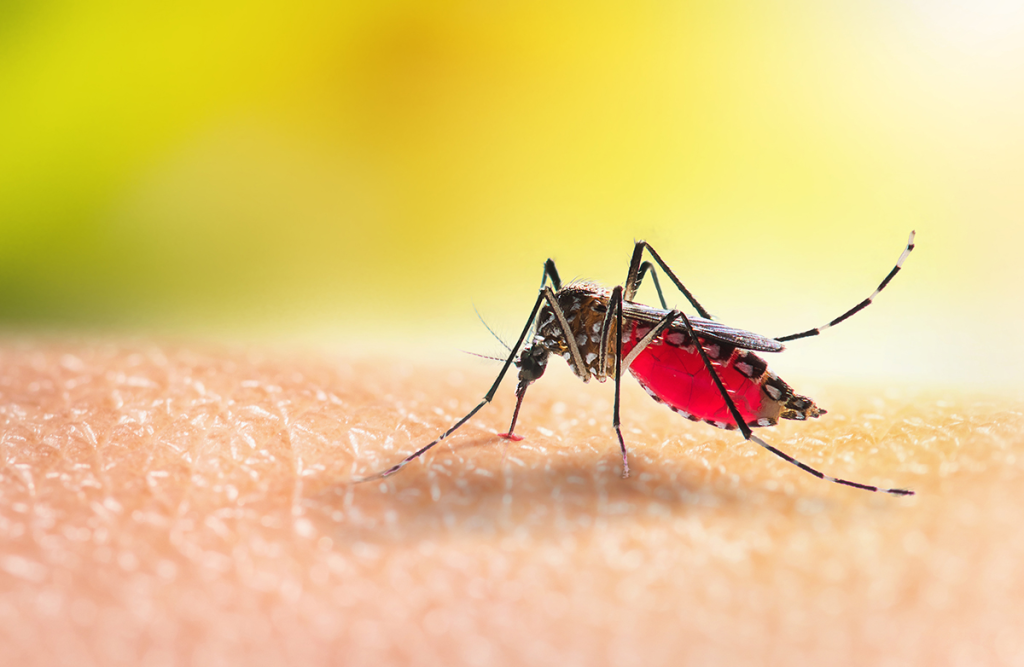
NEW CITY, NY – The Rockland County Department of Health reports the first confirmed human case of West Nile virus (WNV) this season in a resident of the county. The infected patient, aged over 50, resides in Clarkstown and has tested positive for the virus.
The occurrence of this human case emphasizes the importance of safeguarding against mosquito bites and maintaining vigilance in eliminating mosquito breeding grounds on one’s property. Most mosquitoes are most active during periods of calm air between dusk and dawn, with females being the primary culprits of biting. However, some mosquitoes feed at any time of the day.
While the majority of mosquitoes are not carriers of disease-causing viruses, being bitten by a mosquito infected with West Nile virus can result in severe illness and, in certain cases, fatality. Although the chances of infection are relatively low, individuals aged 50 and older face the highest risk of severe illness. It is worth noting that not everyone infected with West Nile virus exhibits symptoms, but the virus can lead to complications, including neurological diseases and less severe flu-like symptoms such as fever, headache, body aches, nausea, and, on occasion, skin rashes and swollen lymph glands. If symptoms suggestive of West Nile virus infection are observed, it is advisable to seek medical attention promptly.
Reducing the risk of mosquito bites can be achieved through the following precautions:
- Cover-Up: When spending extended periods outdoors or when mosquitoes are most active, wear long pants, a long-sleeved shirt, shoes, and socks to minimize exposed skin.
- Mosquito Repellent: Use mosquito repellent as directed on the product label. For outdoor activities with infants, cover baby carriers with mosquito netting.
- Stay Indoors: During peak mosquito activity periods, staying indoors reduces the likelihood of being bitten.
Further information on mosquito bite prevention can be found at CDC.gov.
Mosquitoes lay their eggs in standing water, which develop into larvae over 7 to 10 days before emerging as adult mosquitoes capable of biting. Various types of mosquitoes, including those that can transmit diseases, lay their eggs in and around homes. Common breeding sites include birdbaths, unused flowerpots, discarded tires, unused swimming pools, and even small bodies of stagnant water, such as bottle caps.
Eliminating stagnant water is the primary strategy for curtailing mosquito breeding:
- Property Inspection: Regularly examine the property for any objects that could accumulate water. Items left outdoors, like children’s toys, buckets, wading pools, canoes, and wheelbarrows, should be overturned when not in use.
- Container Drainage: Drill holes in the bottoms of recycling containers and dispose of discarded tires.
- Pools and Spas: If the owner has a swimming pool or spa that is not in use, the water should either be drained from the cover or treat any standing water with Mosquito Dunks®. These dunks are available free of charge at the Health Department, Building D, 50 Sanatorium Road in Pomona, by appointment only, until October 31st or while supplies last. Arrangements for pickup can be made by calling 845-364-3173 or emailing wnv@co.rockland.ny.us.
For additional guidance on preventing mosquito breeding on residential property, contact the Health Department at 845-364-3173 or visit this link. For more information about West Nile virus, visit this New York State resource.

